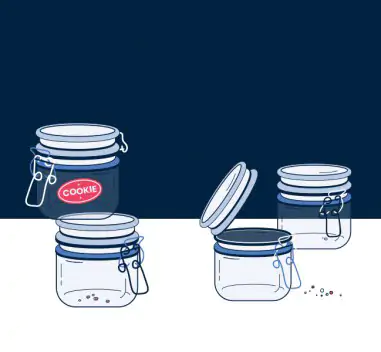Governmental regulations are leading the conversation. In 2023, we’ll see five new state privacy laws go into effect across the United States. The confusion building around the pressing topic of privacy and the adjacent incoming changes has been increasingly tangible for both consumers and the ad tech industry. Now, with these changes finally on the horizon, it’s time to ponder an important question, how does privacy really affect user experience?
Putting Users First
Imagine you are scrolling through social media and the ad that pops up is for the new shampoo brand you have been dying to try. Are you happy because now you can click the link and finally buy it? Are you maybe a little bit creeped out? Now, imagine you are on your friend's phone doing the same thing. Are their ads interesting to you? Are they relevant?
Third-party data has the potential to deliver users effective, targeted ads most of the time. By using this information, companies build better relationships with customers and users see ads that are relevant to them; this includes products, services, news updates, trend information, and anything else they could potentially have an interest in and that could add value to their lives. The increasing number of privacy walls could look like a step backward in user experience. According to Statista, 90% of consumers prefer a personalized experience while Epsilon’s latest report claims that 80% are more likely to do business with a company delivering the same. Without data, users won’t receive a personalized experience through seeing relevant ads. This is a vantage point not receiving enough attention from lawmakers and organizations bidding to dismantle cookies.
The increasing regulations force companies to consider how to use data in a way that users will be comfortable with, especially in regard to sensitive information. In a recent report by Cisco, over 80% of respondents said that the way a company treats their personal data is indicative of the way it views them as a customer. For publishers, first-party cookies are mainly provided by the user and allow their sites to run smoothly. But, when it comes to third-party cookies, a lack of transparency can make users feel that they are not in control of their data and cause them to distrust advertisers.
The IAB Tech Lab has been making strides to ensure that there is data use transparency for users in the digital advertising supply chain for years now, setting standards for our industry. Increasing transparency increases trust, improving the overall relationship between a company and its users. For consumers, the main issue is being left in the dark about who has access to their data and what it is being used for.
The Privacy Narrative
One of the most important aspects of a story is the narrator. As an industry, we have to consider who is telling the story of privacy. Erin Egan, VP and Chief Privacy Officer, Public Policy, at Meta gave an insightful talk at IAB’s ALM conference earlier this year. She dove into the concept of fear surrounding the conversation of the standards and how the state of tech failed to gain control of the narrative. “In my experience the only antidote to fear is understanding,” said Egan. Ad tech needs to explain the importance of digital advertising to lawmakers and other organizations in order to eradicate the fear behind these privacy rulings.
There are agencies using data for the wrong reasons, but there are also agencies using data to better cater to their audiences. The picture being painted of money-hungry agencies hunting down user data for their own benefit is not an accurate depiction of our industry, and if we want to change it, we need to be more transparent.
The Cookies Left in the Jar…
Organizations will need to adapt quickly to adhere to the new mandates and maintain relevancy. For ad tech organizations and advertisers, third-party data may become a thing of the past sooner than we think. Not having access to this information in a cookie-less world will change the industry's processes dramatically and have a real economic impact.
Finally, companies wishing to make a difference before it is too late must get in touch with lawmakers. Government agencies need to understand that more privacy does not equal improved user experience. The bottom line is, we need ads on the open web. It’s the honest truth. Our industry needs to find a way to make sure ads survive while maintaining the delicate balance between not compromising user experience and keeping data safe. The quality of the consumer journey will be caught in the cross-fires of the privacy battle sooner or later, and the sooner ad tech can speak up, the better.




